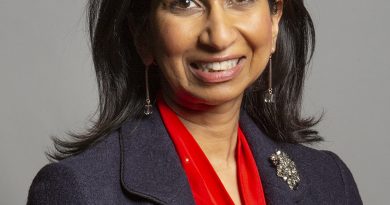Alan Milburn – 2003 Speech to the World Health Assembly
Below is the text of the speech made by Alan Milburn, the then Secretary of State for Health, in Geneva, Switzerland on 19 May 2003.
The UK Government endorses the statement made by the Presidency of the European Union.
I want in particular to record our thanks to Dr Brundtland for the successful role she has played over the last 5 years as Director-General. She has successfully led the World Health Organisation through a time of change and challenge for all health systems – in the developed world every bit as much as the developing world. I believe the World Health Organisation has been immensely strengthened by her period as Director-General.
As events of recent weeks show, the world needs a strengthened World Health Organisation. The emergence of SARS in developing and developed countries, in the Northern and Southern hemispheres, has confronted all nations with a new public health challenge.
Sadly, this is not the first time nor will it be the last that the global community has had to respond to new and emerging diseases. In the last 30 years we have been faced with the emergence of an average of one new infectious disease a year. As the new threat of bioterrorism signifies, infectious diseases are now a challenge to stability and security as much as to health and prosperity to this generation of children as well as future generations..
If the WHO did not exist we would now surely have to invent it.
The WHO has been at the forefront of combating the spread of SARS, using its global surveillance networks. The United Kingdom believes we not only need to maintain a strong WHO, but we need to strengthen those surveillance systems, to cope with old threats and new.
Global trade and travel, environmental, land use and other changes, make inevitable the emergence of new infectious disease. Infectious disease recognises no international boundaries.
Our best response is no more a fortress world, than it is a fortress Europe or a fortress United Kingdom. If the international community is to successfully resist calls for a world of closed borders and isolationist economies – with all the loss that would mean for developing and developed nations alike – then a new global resolve is now needed.
First, the emergence of SARS demonstrates, were there any doubt, of the need to maintain and strengthen international vigilance. Our watchword must be to “expect the unexpected”. Where infectious disease in one part of the world can become within days, if not hours, a problem for another; each and every nation owes an obligation, one to another. To put in place the surveillance, the capacity and the planning to combat these new threats. And I hope the WHO will lead this new global resolve by preparing a nation by nation audit of our state of international preparedness. Nor, if necessary, should we shrink from strengthening obligations under international law.
This is the agenda we wish to support the WHO in developing. Not only to defeat the major diseases that effect child and adult alike – TB, malaria, HIV/AIDS. Not only to successfully prevent disease like cancer and heart disease through measures such as the Framework on Tobacco Control which the UK supports and looks forward to seeing successfully concluded. But a renewed focus on strengthening our ability to combat new diseases as they emerge. We strongly welcome Secretary Thompson’s announcement of new resources to allow us to do just that. Just as in the UK we are continuously reviewing and strengthening our surveillance systems and contingency plans, I hope the WHO will help every country to do the same.
For second, if we are to successfully combat infectious disease, we can only do so with public support. Resilient public health systems are the bedrock of public confidence. Without them public concern can all too easily overwhelm scientific sense. SARS shows the importance of developing such resilience. It also demonstrates the need to maintain a sense of perspective and proportion about risk. We need to examine better ways of informing and educating our publics about the nature of risk and relative risk in health. Not just to change behaviour in order to reduce risk but to be clear that panic and over-reaction can be as harmful to public confidence as complacency and inadequate preparedness. All the actions we take and the advice we give must be firmly rooted in the best scientific and clinical evidence.
While we should never pretend that medicine is anything other than a human science – not an exact one – we cannot allow fear to dictate our response to the new threats we all face. I welcome the accent the WHO has put on patient safety. I hope together we can now consider how better to communicate risk to the people we all serve.
The WHO is in a stronger position to pursue such an agenda because of the leadership of Dr Brundtland. There is much for which we have to thank her. We shall remember her many achievements with gratitude. We wish her well for the future.
And we look forward to working closely with her successor as together, we work for a more healthy and more secure world.

